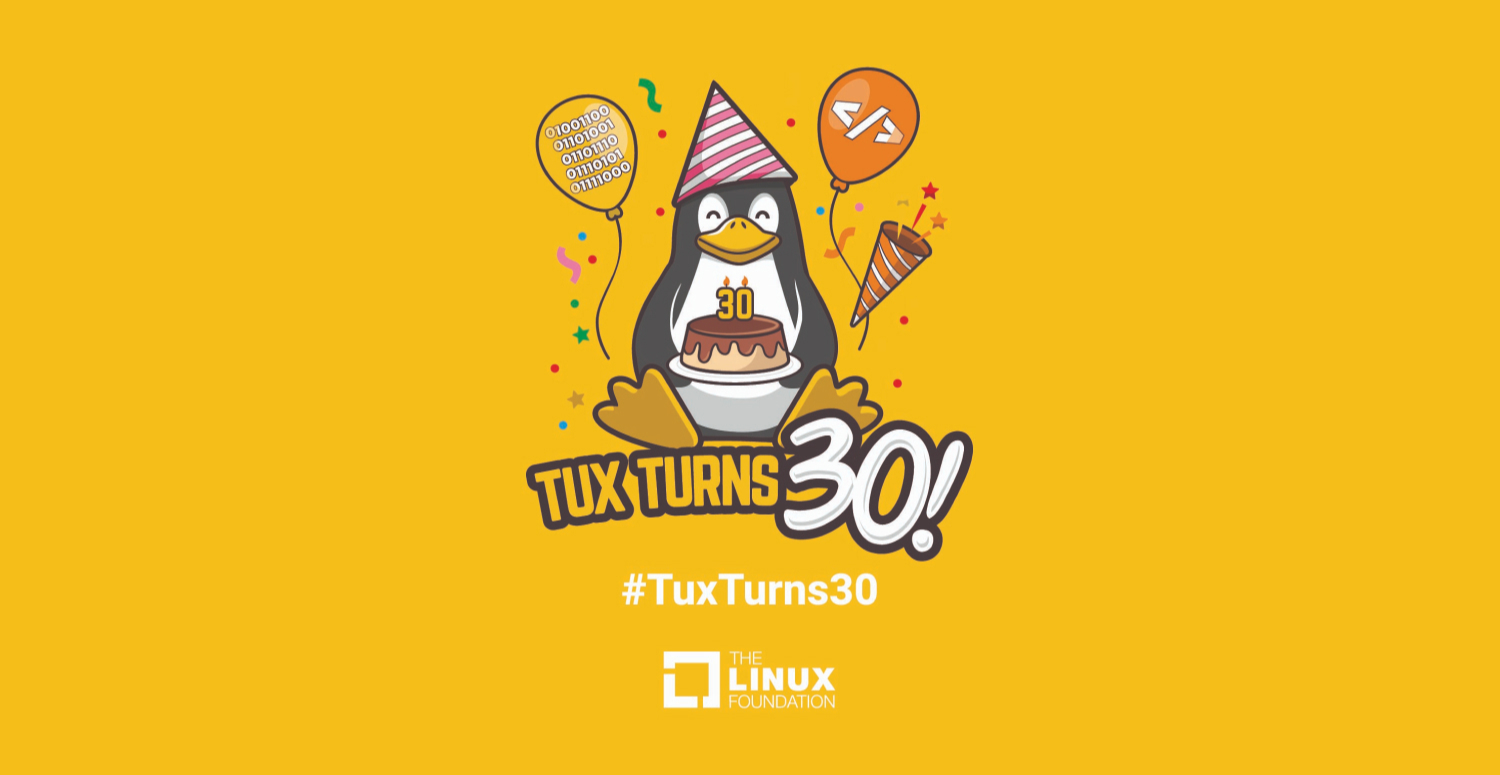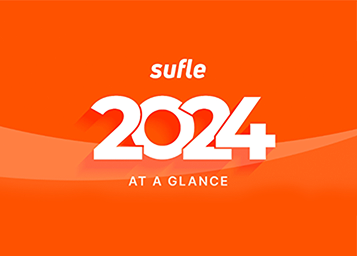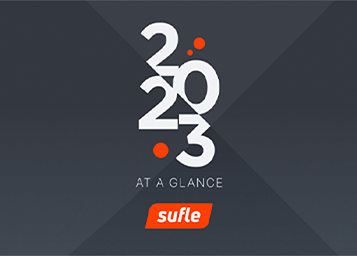
Can you believe Linux has been around for 30 years?
Here at Sufle, we're huge fans of Linux and supporters of Open Source Software. We are a part of the community that has embraced the importance of "Sharing is caring".
On this day in 1991, August 25, Linus Torvalds made his historic statement on the comp.os.minix newsgroup regarding the Linux Kernel which now sits at the core of our modern world.
Hello everybody out there using minix -
I'm doing a (free) operating system (just a hobby, won't be big and professional like gnu) for 386(486) AT clones. This has been brewing since april, and is starting to get ready. I'd like any feedback on things people like/dislike in minix, as my OS resembles it somewhat (same physical layout of the file-system (due to practical reasons) among other things).
I've currently ported bash(1.08) and gcc(1.40), and things seem to work. This implies that I'll get something practical within a few months, and I'd like to know what features most people would want. Any suggestions are welcome, but I won't promise I'll implement them :-)
Linus (torvalds@kruuna.helsinki.fi)
PS. Yes – it's free of any minix code, and it has a multi-threaded fs. It is NOT portable (uses 386 task switching etc), and it probably never will support anything other than AT-harddisks, as that's all I have :-(.
Meanwhile, a significant percentage of the Linux community commemorates the first public release of the Linux Kernel on October 5. Others consider today, August 25, as the project's birthday. Whether there are lots of debates about the actual birth date, Linus says he is pretty much okay if you celebrate one or both! Which birthday you celebrate is up to you.
I guess it is okay to celebrate both birthdays, which means more party and cake! 

We've set up a list of noteworthy Linux events to celebrate the anniversary in a slightly memorable way. Let's take a look at where we've gotten so far.
On August 25, 1991, a 21-year-old Helsinki University student wrote an email to a Usenet newsgroup. He mentioned working on a free operating system, which he described as "simply a hobby" that "won't be as huge and professional as GNU."
It wasn't always the case that Linux was open source software. Commercial redistribution was prohibited in the first several Linux licenses.
MCC and Yggdrasil Linux were among the first Linux distributions, but Patrick Volkerding's Slackware was the first widely successful Linux distribution, and it is being maintained and used today.
Red Hat Linux was created by Marc Ewing. Bob Young buys Ewing's firm, merges it with his own, and becomes Red Hat, the world's most successful Linux corporation.
People at North Carolina State University created the first Linux expo and conference series. For the following many years, this was one of the most well-attended annual Linux shows.
Despite having been bitten by a penguin, Linus Torvalds suggested a penguin as the Linux mascot. Larry Ewing came up with the idea for Tux in 1996. Tux has been the same for the past 25 years.
The origins of KDE, the first significant Linux desktop interface. Matthias Ettrich started it in order to provide a user-friendly desktop. The name was also a play on the Common Desktop Environment (CDE) of Unix.
SUSE, the leading European business Linux, launches its first independent Linux in the same year, after collaborating with Slackware and Red Hat Linux. SUSE continues to be a prominent Linux and cloud powerhouse.
One of the most successful open source projects, GNOME, has played a critical role in the spread of desktop Linux. It has provided us with a number of apps that we now use on our desktop Linux systems.
Microsoft has begun to focus on Linux. The Halloween Documents, revealed by Eric S. Raymond, an early Linux and open-source pioneer, demonstrate that Microsoft views Linux as a threat and begins to develop anti-open-source and anti-Linux efforts. Microsoft will change its tune after more than a decade.
In file serving, Linux is challenged against Windows NT for the first time. Linux wins in the end. The battle between Linux and Windows for server operating systems is heating up. Linux will finally triumph. Linux now dominates the web server and cloud computing markets.
In 2001, IBM announced a billion-dollar investment in Linux. It would turn out to be IBM's finest ever investment. IBM has also broken the ice in the enterprise sector for Linux with this approach.
Linux now competes with Solaris and other high-end server operating systems with this release.
SCO, which formed from the merging of the old SCO Unix firm with the Caldera Linux startup, abandoned its Linux heritage and sued IBM and other businesses, claiming that Linux is a clone of Unix. Although the firm fails, its negative press has limited Linux's commercial appeal for years.
Ubuntu, which is based on Debian Linux, has grown to become the most popular Linux desktop operating system and the most significant of all cloud Linux variants.
For years, the Linux Kernel development team relied on the proprietary program BitKeeper for version control. Richard Stallman, the pioneer of Free Software, criticized the use of proprietary software in the creation of open source software. BitKeeper has chosen to discontinue providing the community with the free version. Linus Torvalds was prompted to create his own version control system as a result, and Git was born.
Android is announced by the Open Handset Alliance, which comprises Google and a number of hardware makers. Linux took the first step into the realm of mobile OS with the introduction of Android, a mobile operating system based on the Linux Kernel. Since it runs on more than a billion smartphones, it will become the most popular end-user operating system of all time.
The New York Stock Exchange, and many other major stock exchanges across the world, have converted to Linux as their primary operating system.
Google has released Chrome OS, a desktop operating system based on the Linux kernel. Later, Google began to release Chromebooks, which are specialized computers that run Chrome OS.
The evolution of information technology begins with the shift from servers and data centers to the cloud, which runs on Linux.
In the same year, Red Hat, provider of open-source software, has announced its financial statements for 2012, which totaled $1.3 billion. This is the first time a firm specializing on open-source software has surpassed the $1 billion barrier in yearly revenue.
Microsoft CEO Satya Nadella has stated that his company supports Linux. The firm demonstrates this by supporting Linux and open-source software on its cloud and in its internal deployments.
Torvalds published kernel version 4.0 in April 2015. By February 2015, approximately 12,000 programmers from over 1,200 organizations had contributed to Linux, including some of the world's top software and hardware companies. Linux 4.1, which was launched in June 2015, has approximately 19.5 million lines of code contributed by almost 14,000 people.
Microsoft handed up its entire patent portfolio to members of the Open Invention Network open-source patent consortium in probably its most extreme pro-open-source action ever. This is the organization in charge of defending all of Linux's patents.
Microsoft introduces Windows Subsystem for Linux 2.0, its own native Linux for Windows 10 users. It allows individuals to run Linux and Windows at the same time.
IBM acquired Red Hat for $34 billion, making it the largest software acquisition in history. With this move, it is evident that Linux reigns supreme in the IT world.
The worldwide cloud market is currently worth more than $100 billion. Cloud giants operate on Linux 90% of the time.
After 30 blissful years, that “hobby”, the core of the open source movement, encourages us to collaborate and work together based on the principle of open source.
Now, Linux may be found everywhere, Linux is the modern world!
Happy birthday Linux, glad you are here.
Thank you for reading, let’s toast for Linux today.
Are you looking for a partner to entrust your Linux workloads? Reach us out!
A technology nerd, specializing in interpreting data and marketing, Melih is eager to learn and share his knowledge of business technologies. He is always extremely curious to learn more about how technology impacts organizations.
We use cookies to offer you a better experience.
We use cookies to offer you a better experience with personalized content.
Cookies are small files that are sent to and stored in your computer by the websites you visit. Next time you visit the site, your browser will read the cookie and relay the information back to the website or element that originally set the cookie.
Cookies allow us to recognize you automatically whenever you visit our site so that we can personalize your experience and provide you with better service.


